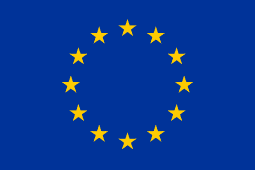What is sustainable tourism and 6 ways you can be a responsible traveller!
6 Ways to Be a More Sustainable Traveller
TL;DR → Reduce your impact on the planet, support local economies, and protect wildlife.
The three pillars of sustainable tourism are employing environmentally friendly practices (reduce, reuse, recycle); protecting cultural and natural heritage (restoring historic buildings or saving endangered species); and providing tangible social and economic benefits for local communities (ranging from upholding the rights of indigenous peoples to supporting fair wages for employees).
Here are 6 things you can do on your next trip to become sustainable:
Say no to planes and yes to trains!
Become part of the emerging “slow travel” trend by going to fewer places and spending more time in each. Train travel is a good way to do this. Not only will you experience a deeper sense of place, you’ll also decrease your carbon footprint.
Give, the right way.
Many well-intentioned travellers bring sweets, used clothing, books, and pencils to hand out to children and villagers in developing nations. Sadly, this kind giving often has unintended consequences—it can sow community conflict and encourage a culture of dependency and begging.
It is better to give—be it money or goods—to reputable local organisations that work on social welfare programs, or to international groups that partner with them.
Say no to plastic.
Plastic bottles and bags that will take hundreds of years, if ever, to break down—all the while wreaking havoc on marine ecosystems. (e.g. The Great Pacific Garbage Patch)
Instead opt for locally purified water in recyclable glass bottles or carry tote bags in your luggage to use while shopping locally. This will also reduce your carbon footprint!
Research your tour operators.
Always ask three questions before signing on:
- What are some of your tour company’s environmentally friendly practices?
- Can you give me an example of how your trips help protect wildlife or cultural heritage?
- Do you employ local guides on your trips?
Any outfitter that cannot provide a clear answer is behind the times. Find another one.
Support the real local economy.
Locally made crafts and souvenirs are not always cheaper, but purchasing them ensures your contribution to the economy will have a more direct and positive impact.
Never buy wildlife products—period.
When doing so, you are helping to support a growing marketplace for trafficking rare and endangered wildlife products as souvenirs. Just say no.
We believe in making this world a better place and to help our audience become more responsible we designed play experiences around the United Nations Sustainable Development Goals (UN SDGs)
Our latest game that promotes SDGs is Lakshadweep.
Sustainable tourism remains one of the main reasons why this game was created. Lakshadweep is not only about building and developing the island ecosystem but also promoting responsible and sustainable behaviour.
As often is with exotic destinations, the greatest impact is not from the local communities but from temporary visitors. This impact could be positive (employment, education, trade, etc.) or negative (pollution, disease, ecological destruction, cultural degradation, socio economic damage, etc.).
Travel to ecologically sensitive areas like Lakshadweep gives us the opportunity to leave a positive footprint by making better choices.
Where to begin? Start with SDGs!
The Sustainable Development Goals (SDGs) or Global Goals are a collection of 17 interlinked global goals designed to be a "blueprint to achieve a better and more sustainable future for all".
Given the dramatic increase in tourism, the report strongly promotes responsible tourism. The SDGs include targets on tourism and sustainable tourism in several goals:
- Target 8.9 of SDG 8 (Decent work and economic growth) states: "By 2030, devise and implement policies to promote sustainable tourism that creates jobs and promotes local culture and products".
- Target 12.b of SDG 12 (responsible consumption and production) is formulated as "Develop and implement tools to monitor sustainable development impacts for sustainable tourism that creates jobs and promotes local culture and products." UNWTO is the custodian agency for this target.
- Target 14.7 of SDG 14 (Life below Water) is to: "By 2030, increase the economic benefits to small islands from the sustainable use of marine resources, including through sustainable management of fisheries, aquaculture and tourism"
References:






